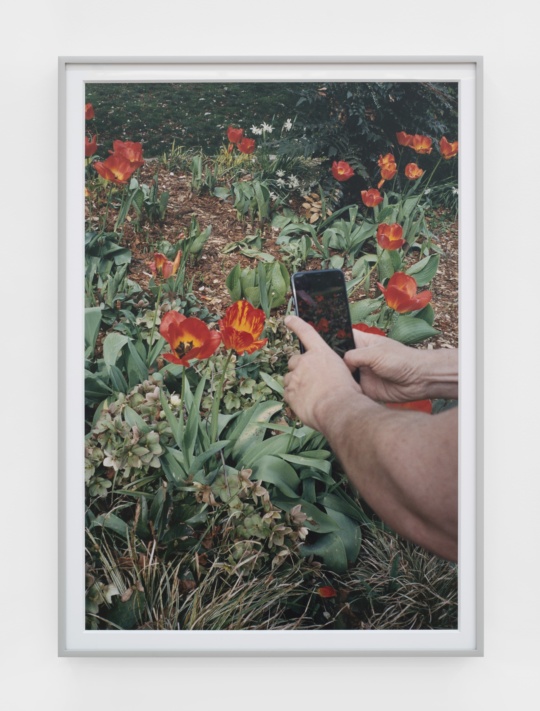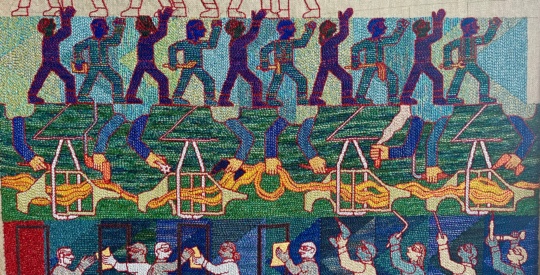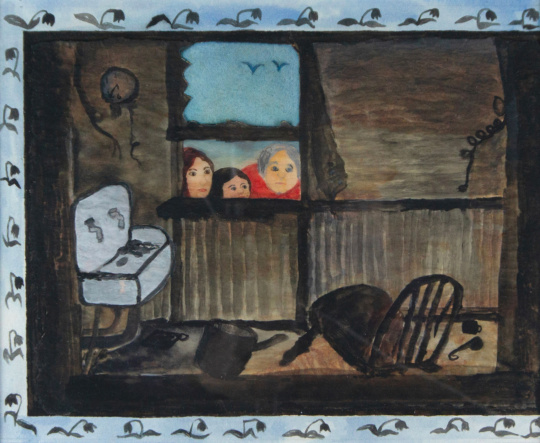 Flux Projects has announced the hiring of independent curator Melissa Messina as its first Artistic Director. Messina joins the seven-year-old organization in a time of, well, flux, as it grows and reevaluates its role and capabilities, especially following the challenges of Flux Night 2015.
Flux Projects has announced the hiring of independent curator Melissa Messina as its first Artistic Director. Messina joins the seven-year-old organization in a time of, well, flux, as it grows and reevaluates its role and capabilities, especially following the challenges of Flux Night 2015.
Messina has roots in the city’s art community. She moved to Atlanta when she was 17, and after earning a BFA from the Atlanta College of Art in 2001, she guest-curated for the Mayor’s Office of Cultural Affairs in 2002-03, and worked for art consultancy Barkin-Leeds Ltd., in addition to making and exhibiting her own work. Messina will divide her time between Atlanta and Savannah, where her husband’s business is based.
Messina brings a wealth of knowledge and experience to the newly created role. She guest curated upcoming exhibitions at the Visual Arts Center in Richmond — “Conjurers: Artists Imbue the Ordinary,” featuring work by Vanessa German, Marcus Kenney, and Shawne Major, opening September 16 — and the Kemper Museum of Contemporary Art in Kansas City — “Magnetic Fields: Expanding American Abstraction, 1965 to Today,” a historic and contemporary look at abstraction by black women artists co-curated with Erin Dziedzic scheduled for summer 2017. She is the curator of the Mildred Thompson Legacy Project, which is based in Atlanta, and curated the current exhibition of Thompson’s work at the SCAD Museum of Art in Savannah, where she also recently served as senior curator and interim executive director.
While at the SCAD Museum, Messina organized solo exhibitions for such artists as Lynda Benglis, Nick Cave, Whitfield Lovell, Tim Rollins and K.O.S., and Ursula von Rydingsvard, and oversaw site-specific projects by Teresita Fernández, Ingrid Calame, Trenton Doyle Hancock, Rafael Lozano Hemmer, and Jason Middlebrook, among others.
Also an accomplished writer (and BURNAWAY contributor), Messina received a Creative Capital | Warhol Foundation Art Writers Grant in 2014. Last year she participated in the Independent Curator International (ICI) Curatorial Intensive.
In a press release, Flux Projects founder Louis Corrigan says: “Melissa has vast curatorial experience, a deep connection to Atlanta, and a passion for contemporary art that will resonate with but also challenge our city.”
“The best thing about Flux Projects is that it’s always changing and taking risks, responding to now,” says Messina. “The nimble nature of the organization is what I’m excited about.”
Flux Projects, which has an annual budget averaging $250,000-300,000, is in the midst of finalizing its three-year strategic plan, and adding senior staff was a priority. “We had always hoped to have a curator on staff,” says Anne Archer Dennington, founding Executive Director of Flux Projects. “We enjoyed working with guest curators on Flux Night. One of the things we’ve seen working with Helena [Reckitt] and Nato [Thompson], is that it’s beneficial to work with a curator who will network in their area, outside of Atlanta.”
Last year’s Flux Night was curated by Creative Time’s Nato Thompson and was sited in the Old Fourth Ward, the first time the event was not held in Castleberry Hill. Thompson was charged with focusing on the art component of the event to help it shed the street party, festival-like feeling it had developed.
But for the first time in its six-year history, the event was postponed by weather, which was still a factor on the rescheduled date a week later, resulting in lower attendance and a lot of muddy shoes. Complicating matters was the unavailability of staff and equipment due to the postponement, which meant a number of installations were compromised or late to the party. The mess raised the obvious question of whether blowing a huge chunk of Flux’s budget on a one-night event was wise.
Another concern, Dennington says, is that, despite funding from Flux, many artists are still spending their own money to realize their projects for the event. “Most of what happens in Atlanta happens on the backs of artists. We don’t want to keep doing that,” she says. “After realizing how much it takes and the limited resources artists have … is that helping our art community get better? No.”
Dennington points to the well-received Nick Cave three-day performance earlier in 2015 as a possible template for Flux’s future endeavors. That performance had a budget of $150,000 plus $49,000 worth of donated goods and services. “Last year we saw that there is a real desire in our community for programming on the level of Nick Cave. We want to be more thoughtful about what the entirety of our work is saying as a whole,” says Dennington, “which is part of maturing — having enough work and experience to reflect back on.”
Messina wants Flux Projects to become a resource for Atlanta artists. “We’re bringing in more nationally and internationally recognized voices, but we want projects that will engage and resonate with the community and that are rooted in a response to the city — projects that cannot be executed anywhere else.” She acknowledges the challenges of trying to engage local audiences as well as a broader art community. “I have a global perspective and have worked on a national scale,” she says. “I’d like to bring those resources to the table, not for the sake of bringing in big names but thinking about what Atlanta may need.”
Speaking about coming changes at the organization, Dennington emphasized the desire to have more supportive programming. “We’re not doing the outreach and supportive programs we’d like to be doing,” she says. In the past, Flux has held workshops, brought in visiting artists to meet with local artists, offered a Creative Capital professional development workshop, organized artist talks and book signings, all of which, according to Dennnington, have been well received. “We want to do more with that,” she says.
Messina agrees with critics that it is “a huge risk to do a single event on that scale when you could have a tornado or torrential downpour. Five hours is a small amount of time with a narrow margin for error.”
Will there be another Flux Night? “We’re examining that,” says Messina. “It has a strong history and the response has been incredible, but can we extend that feeling, that engagement, throughout the year?” She notes that “there’s not another city where an event happens on that scale without some kind of involvement from the city and with a substantial staff and much larger budget.” [Flux Projects receives general funding from the Mayor’s Office of Cultural Affairs, Fulton County Arts & Culture, and the Georgia Council for the Arts.]
“Even if Flux Night were to continue, there would have to be a lot more programming throughout the year for that to make sense,” she says.
Messina is working on an initiative to launch in early 2017. She describes it as an incubator project, with the working name Flux Exchange. It is intended to create an immersive experience for visiting artists, who will spend time in Atlanta, do a public program, and engage with local artists. The hope, she says, is that more in-depth proposals and larger projects will develop out of the experience. “It’s not an outside artist just plopping work down in a city” that could be anywhere, she says.
With Messina’s appointment comes high expectations and hopes that one of Atlanta’s more experimental art organizations is now poised to better fill a void in the city’s art scene.
Stephanie Cash is Executive Editor of BURNAWAY.




